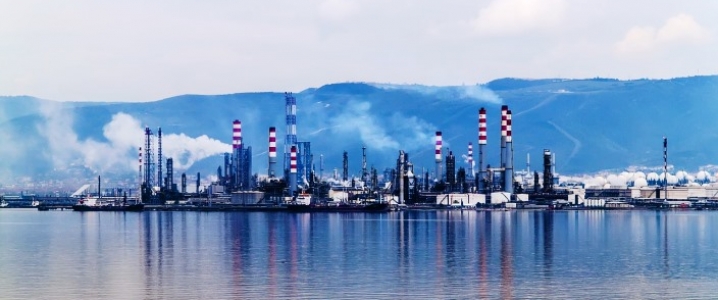U.S. shale production is at record highs and the momentum is still not over. A lot has been said about the energy self-sufficiency implications of this trend, but there’s something that has not garnered a lot of attention: U.S. shale is light crude, great for making gasoline and other light fuels, but not so great for products such as middle distillates. Why this is important? Because gasoline demand is stagnating while demand for middle distillates is set for a serious boost ahead of the new IMO regulations on maritime vessel emissions.
In a recent article for Forbes, Wood Mackenzie’s VP for Chemicals and Oil Markets, Alan Gelder, warned that U.S. refiners may very soon find themselves struggling with excess production of gasoline that exceeds demand for the fuel. At the same time, to make matters worse, the production slump in Venezuela is reducing the availability of heavy crude needed for middle distillates, not to mention that not all U.S. refiners have upgraded their facilities to produce more low-sulfur bunkering fuel products.
The problem concerns Asia as well, Gelder notes. Most refineries there need heavy sour crude to function, and there could be a shortage of this particular type of crude on the horizon because of the situation in Venezuela.
If you are wondering if this shortage may have something to do with Beijing’s recent decision to extend a US$5-billion lifeline to Caracas, you may have a point. Iran also produces heavy crude besides a light grade and condensate, and this, too, will be cut off from markets, if we are to believe the dominant narrative arguing that Iran will lose more than half of its exports when U.S. sanctions kick in.
The good news is that, according to the Wood Mac expert, things will change soon enough and the shortage, if it ever occurs, will be short-lived. Chinese refiners are spending a lot of money on upgrades that will increase their portion of gasoline and reduce the production of other fuels, notably diesel and gas oil.
Related: Schlumberger To Buy Russia's Leading Drilling Company
That is fine if only gasoline demand grows, but the IMO emissions rules will also spur greater demand for low-sulfur diesel and gas oil—part of the group of fuels that are called middle distillates—as they come in between light fractions such as gasoline, and heavy ones, such as fuel oil. Depending on how strong this spur is, a shortage might occur, although, according to Gelder, the chances of that happening are not that great.
Still, it would pay to be prepared. Gelder may be skeptical about the extent of the disruption that IMO’s new rules will have, but others see it as one of the greatest shocks that the oil industry has ever experienced.
For instance, the head of S&P Global Platts Analytics, Chris Midgley, said at this week’s Asia Pacific Petroleum Conference that the new rules will have an impact worth US$1 trillion on the industry over a period of five years as well as reverberations across many other industries.
A senior Equinor executive, the head of the Norwegian company’s marketing division, also demonstrated wariness. "To us it seems that the market is not fully prepared for IMO 2020," Tor Martin Anfinnsen told the S&P Global Platts event. "We expect that the IMO [regulation] will increase market volatility, spreads and trade flows for some time.”
What do all these predictions have to do with U.S. refiners? Well, they chime in with Gelder’s final words in the Forbes story: “The pressure on the refiners is to use their flexibility to shift yields towards diesel/gas oil.”
By Irina Slav for Oilprice.com
More Top Reads From Oilprice.com:
- The Future Of Global LNG Is Here
- Shell CEO: $80 Oil To Boost Energy Infrastructure Investment
- Traders Turn Bullish Ahead Of Iran Sanctions


















